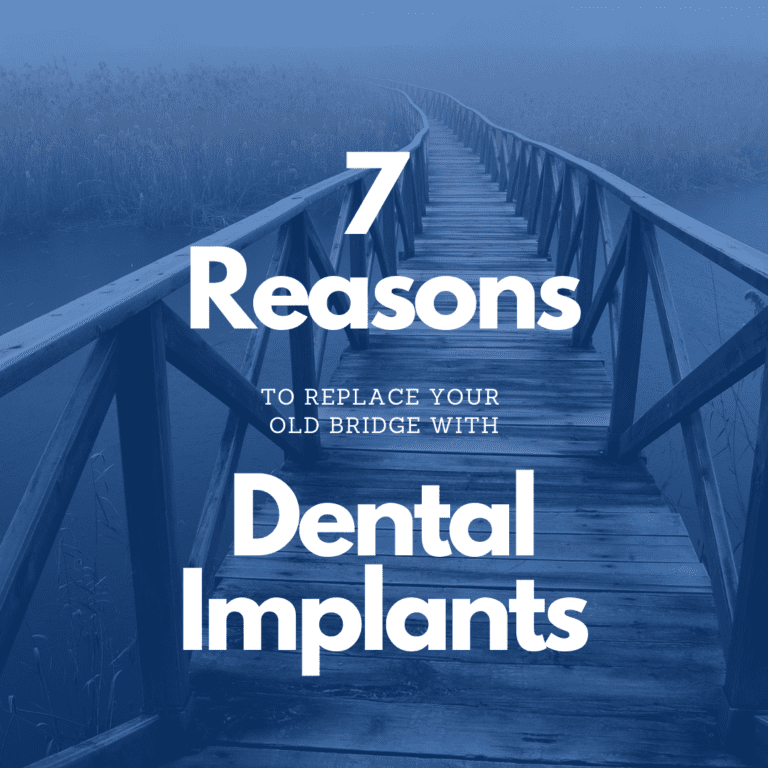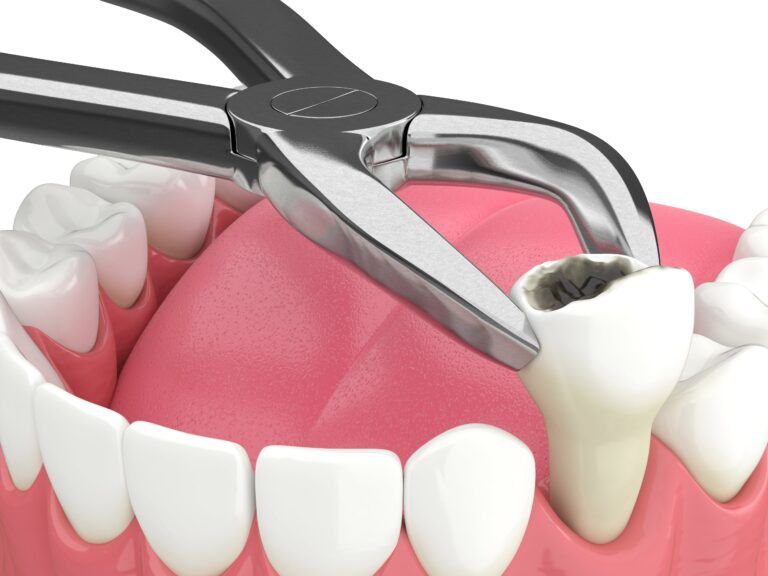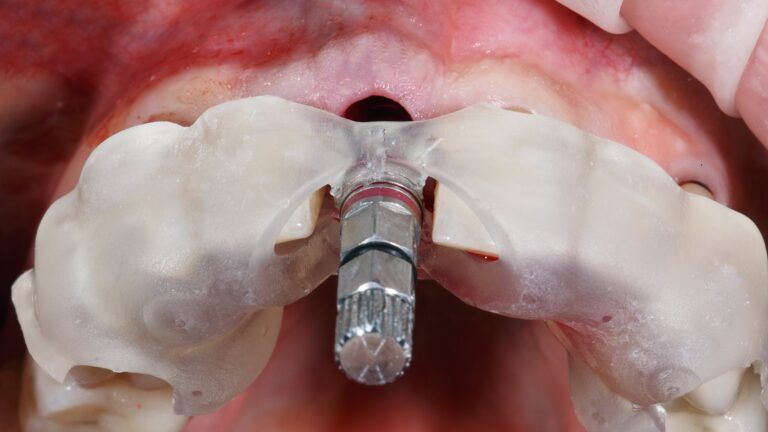According to the American College of Prosthodontists, as many as 120 million Americans are missing at least one tooth. The state of being completely toothless is known as edentulism, while missing one or more teeth while still having natural teeth is known as partial edentulism. Since such a large number of Americans are partially edentulous, there are a variety of tooth replacement options available.
In the past, one of the most common tooth replacement options for partial edentulism were dental bridges. A dental bridge is composed of one or more fake teeth fused to and supported by dental crowns on either side of the gap left by missing teeth. The two dental crowns are cemented over existing teeth, while the fake teeth are used to replace the missing teeth. This structure is known as a traditional dental bridge.
While traditional dental bridges are the most common type of bridge used to replace one or more missing teeth, there are two other types of non-implant bridges that can also be used. These include:

- Cantilever Bridge: a cantilever bridge is similar to a traditional bridge with the exception that it is only composed of one dental crown fused to one fake tooth. This type of bridge is not often used anymore, but was used in the past.
- Maryland Bonded Bridge: a Maryland Bonded Bridge is similar to the traditional dental bridge in structure, however instead of dental crowns it is supported by a metal framework that wraps around the existing teeth.
Even as recently as about 20 years ago, dental bridges were considered to be one of the best options for replacing missing teeth. Although dental implants existed at that point, their longevity and durability was not fully realized until more recently. For this reason, many dentists from 20 years ago or so recommended dental bridges as tooth replacement options because bridges were predictable and reliable.
Recently, however, the attitude surrounding tooth replacement options such as dental implants and bridges have changed. Within the last 20 years, dental implants have proven their predictability, reliability, and longevity. Also within the last 20 years, a few drawbacks of dental bridges have been realized. The combination of these discoveries has resulted in many dentists recommending that their patients replace old bridgework with dental implants. Here are some reasons why this is being recommended:
Bridges Fail Easier
One of the main drawbacks of traditional bridges is that patients often have a hard time properly flossing around the margins between the restoration and their natural teeth. Unfortunately, this allows bacterial populations to grow, which generally results in marginal decay. As a result, the majority of dental bridges tend to fail within the first 5-10 years, since the entire bridge will need to be replaced when the natural teeth below the supporting crowns become decayed.
Bridges Sacrifice Healthy Teeth

Another main drawback of traditional dental bridges is that they sacrifice healthy teeth. This is because traditional dental bridges must be supported by placing a crown over a natural tooth on either side of the gap. To place a dental crown, however, the affected tooth will need to be reduced significantly in size to accommodate the placement of a crown. Unfortunately, these modifications are permanent since enamel does not grow back once it has been removed.
Bridges Get Larger Over Time
When traditional bridges fail, they will need to be removed and replaced. However, the two natural teeth on either side of the bridge will also usually need to be removed and replaced as well. This results in a slightly larger bridge everytime a bridge fails. Eventually, longer bridgwork is needed, which can compromise the stability and strength of the teeth. Not to mention that the number of healthy teeth decreases as the bridgework increases.
Dental Implants are Precise
One of the reasons why dental implants are now considered to be the “gold standard” of tooth replacement options is that they are extremely precise. Nowadays, computer guided implant surgery can even be used to carefully guide the implants in the exact right spot at the exact right angle. This has revolutionized the way implant surgery is performed and helps to maximize the efficiency of the procedure while minimizing postoperative complications and discomfort.
Dental Implants Last Longer
Although the anticipated lifespan of dental bridges ranges from 10-15 years, many dentists notice their patients only tend to have bridges of about 5-10 years before they need to be replaced. Part of this is because plaque, tatar, and bacteria are able to decay the natural teeth supporting the dental crowns. Once these teeth are decayed, they can no longer be used to support the bridgwork and are usually removed.

Dental Implants Function Like Natural Teeth
While traditional dental bridges can restore the appearance, as well as some of the function, of natural teeth, dental implants are able to function almost exactly like natural teeth. This is because dental implants are inserted into the jawbone to act as artificial tooth roots used to support the dental prosthetic. The result is an aesthetically pleasing artificial tooth or teeth that functions like natural teeth. Additionally, implants also provide stimulation to the jawbone which prevents the jawbone from deteriorating over time. Unfortunately, dental bridges cannot accomplish this since they are only placed above the jawbone.
Dental Implants Preserve Natural Teeth
Unlike dental bridges, which sacrifice natural teeth to use as supports for the bridgework, dental implants preserve natural teeth. This is because implants are supported by the jawbone instead of surrounding natural teeth. This ultimately means that dental implants can be used only to replace missing teeth, while the surrounding natural teeth can remain entirely intact. This makes dental implants a more ideal option when replacing a few missing teeth surrounded by natural teeth.

Irfan Atcha, DDS, DICOI, DADIA at New Teeth Chicago Dental in Chicago, Illinois is a board-certified general dentist and a nationally recognized expert in dental implants, cosmetic dentistry, and sedation dentistry. Dr. Atcha is now serving patients in Naples, Bonita Springs and SW FL area with All-on-4 implants, teeth-in-a-day, same day dental implants and the complex zygomatic dental implants for the no-jaw bone solution approach. To schedule a consultation please email Dr. Atcha at teethforyou@gmail.com.





